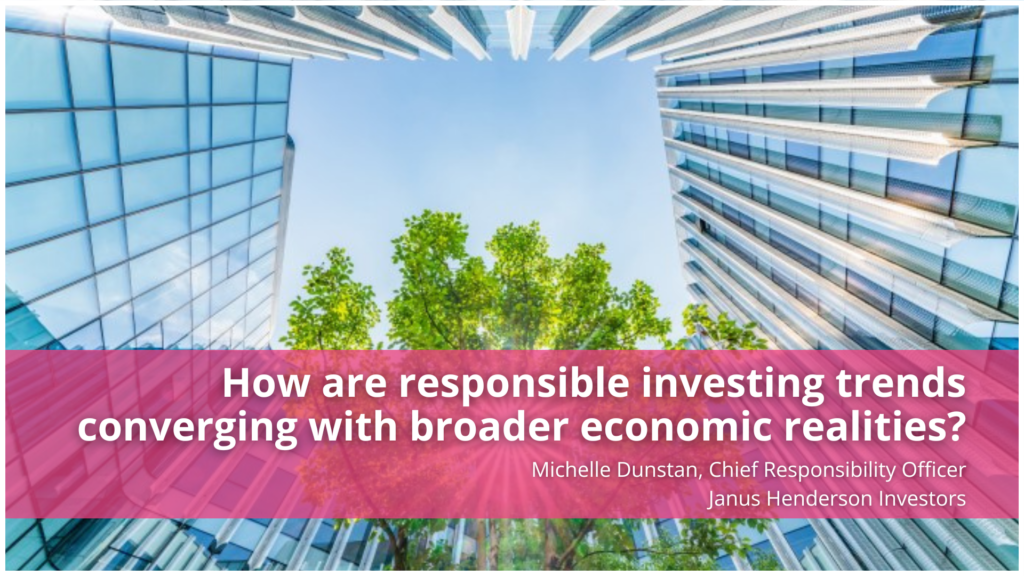Climate Progress or just another COP out?
Miranda Beacham, Head of UK Responsible Investment, Aegon Asset Management

Note: The views expressed on these pages are the opinions of their respective author(s) only and do not necessarily reflect the views and opinions of UKSIF.
This website should not be taken as financial or investment advice or seen as an endorsement or recommendation of any particular company, investment or individual. While we have sought to ensure information on this site is correct, we do not accept liability for any errors.
Climate Progress of just another COP out?
Miranda Beacham, Head of UK Responsible Investment, Aegon Asset Management
COP 30 is upon us – being held this week in Belem, Brazil. This is the 10th anniversary of the Paris Agreement and a good time to look back on what has been achieved over the last decade and what needs to come next.
In Paris, back in 2015, there was an admission that swift action was needed to prevent a climate catastrophe. A bold agreement was reached to keep the global temperature to well below 2° above pre-industrial levels and to limit the increase to 1.5° by means of emission reduction targets (known as Nationally Determined Contributions – NDCs), set by individual countries. These commitments included measures for adapting to climate change and providing financial support to developing nations most affected by its impact. Crucially, the agreement required all parties to progressively enhance their emission reduction efforts over time.
When the agreement came into force in November 2016, it was surrounded by positivity with 55 countries ratifying the agreement, accounting for 55% of the global emissions.
What has been achieved since?
The 1.5° goal has become a north star for all climate commitments and therefore those who monitor this data regularly were dismayed to read the Copernicus report in January this year showing that the global temperature rise in 2024 had breached the 1.5° limit. However, scientific convention means that this goal is based a long-term average – i.e. 20 years – with the first “breach year” being the midway point. As a result, it will be a further nine years before the breach can be declared officially.
Global Surface Air Temperature Increase

Source: Copernicus Climate Change Service (C3S) / European Commission by the European Centre for Medium-Range Weather Forecasts (ECMWF).
Given the trend in global temperature, highlighted in the chart above, it does not look like meaningful progress has been made since 2015. It is clear the NDCs are intended to be the implement for driving change – but do they stack up against the 1.5° target?
One of the biggest issues with the NDCs is that President Trump withdrew the US from the Paris Agreement. Latest figures from the EU show that the US is responsible for 11% of global emissions in 2024, so its loss from this process is significant. It could also have knock on effects to the overall ambition of other countries, who may feel it is pointless if the US is not willing to engage in a meaningful way. However, we see China committing to a target, based on absolute volumes of emissions, which is progress, albeit they have not submitted a NDC yet. China accounts for around 30% of global emissions and the targets set fall short of net zero.
In the rest of the world, 65 countries have submitted their 2035 NDCs – which sounds promising until it becomes apparent that there are varying degrees of alignment and 128 countries have failed to submit, with the COP summit only days away.
The reality is that 65% of global emissions are covered by NDCs until June according to the Climate Action Tracker. The question is whether this is enough or if there is a better way to motivate change?
Brazil, the host nation, is keen to take the lead. It has suggested a Globally Determined Contribution – a broader, more inclusive framework that engages cities, indigenous peoples, youth and businesses alongside national governments in determining how climate change can be tackled.
It is also suggesting a Global Ethical Stocktake – with the plan to include dialogues with civil society across all continents. These reflect on the values, behaviours and responsibilities that must shift for UN climate commitments to become a reality and ensure historically excluded voices are not ignored in the negotiations.
Finally, it aims to introduce the Tropical Forest Forever Facility – a fund aimed at mobilising $4 billion annually to reward countries for conserving tropical forests.
These are lofty ambitions, only time will tell if they are successful in achieving them.
Are there any reasons to be cheerful?
There are a few things that have happened in the last 10 years that, in all probability, would not have happened without a global focus on emission reduction.
In 2015 solar and wind energy made up less than 5% of the energy mix – they now represent 15%. Sales of electric vehicles have grown from 540,000 in 2015 to 15.1 million in 2025, fuelled by new battery and charger technology and we are also seeing most developed countries successfully decoupling emissions from economic growth.
What can we expect from COP 30?
The thematic days suggest a broader scope of progress. The opening days will focus on cities, infrastructure and resilience – signalling that the discussion is moving on from mitigation and recognising that we need to adapt to the changing environment.
The debates will move on to discussions around moral obligation and governance of change before heading on to biodiversity. For too long biodiversity and climate change have been discussed as different topics whereas, in reality, they are two sides of the same coin.
As COP30 unfolds in the heart of the Brazilian rainforest, we’ll be watching closely. In future articles, we’ll explore how these ambitions translate into action – and what they mean for investors.
Note: The views expressed on these pages are the opinions of their respective author(s) only and do not necessarily reflect the views and opinions of UKSIF.
This website should not be taken as financial or investment advice or seen as an endorsement or recommendation of any particular company, investment or individual. While we have sought to ensure information on this site is correct, we do not accept liability for any errors.


